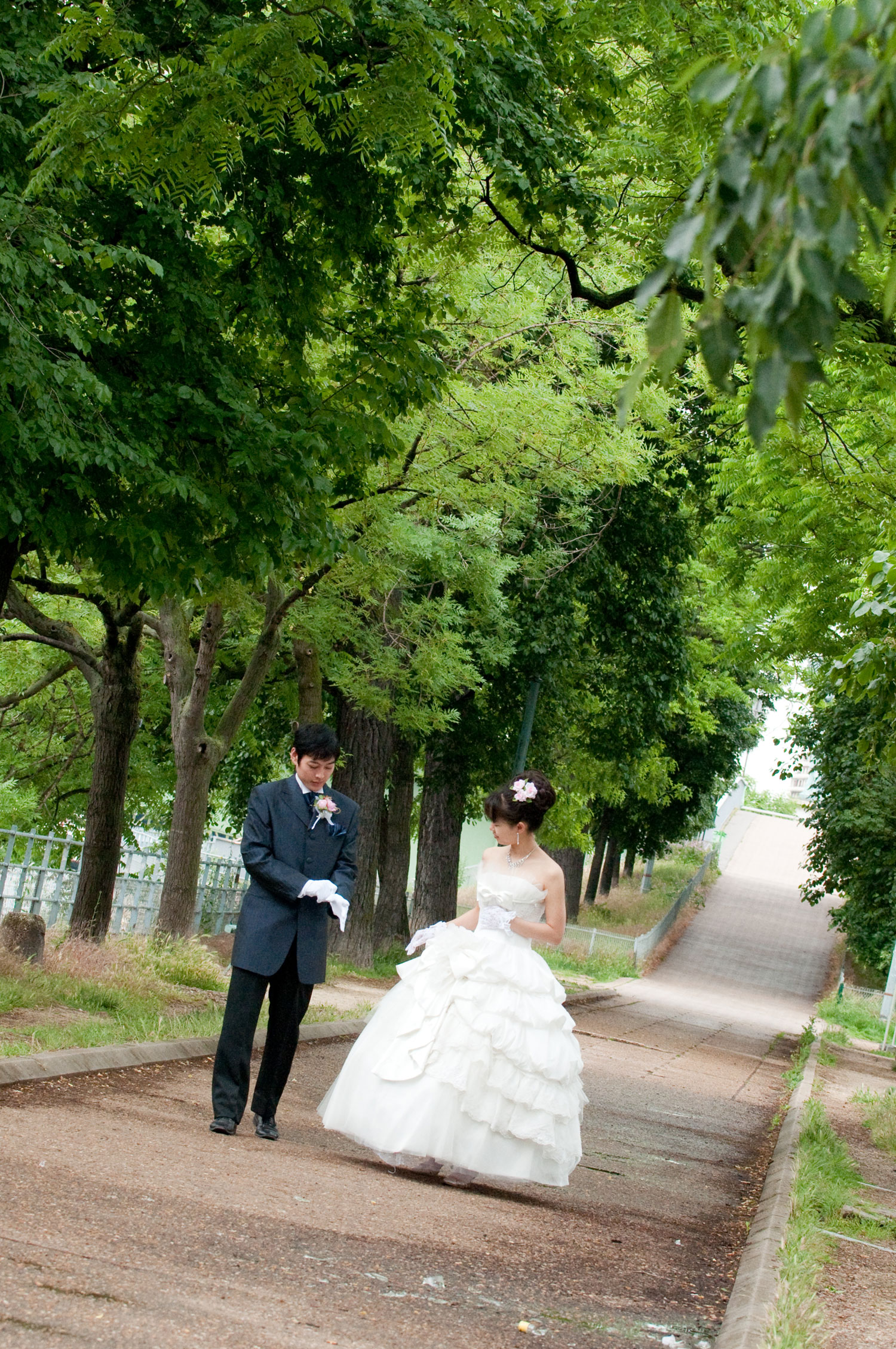how long will i test positive after having covidhouses for rent wilmington, nc under $1000
how long will i test positive after having covid
- フレンチスタイル 女性のフランス旅行をサポート
- 未分類
- how long will i test positive after having covid
Ellen decided not to test before her flight back to the mainland, rationalizing that germs were everywhere and other passengers on her flight likely had COVID, too. If you've been exposed to a close contact who has COVID-19, you should take a test at least five days after your last contact with that person. Her partner, who had been around her unmasked at the height of contagion, never got sick. "The fact that tests can remain positive post-infection may be one reason why [the CDC] emphasized time [over testing to end isolation].". High 41F. I wore a mask, obviously., We all have our reasons for traveling while sick. "This paper puts our data on a very firm footing," Jaenisch says. And, if you're in high-risk situations on a trip (like a crowded indoor party), the CDC recommends taking a rapid test when you get back. SARS-CoV-2, the virus that causes COVID-19, seems to have become a permanent presence in our lives. That's because antigen tests, more so than PCR tests, are prone to false negatives. Whitehead Institute for Biomedical Research. Jaenisch and Zhang argue that the combined results of these experiments show strong proof of viral integration. Zhang, Liguo, Punam Bisht, Anthony Flamier, M. Inmaculada Barrasa, Max Friesen, Alexsia Richards, Stephen H. Hughes, and Rudolf Jaenisch. Check out her previouscolumn, on how to avoid bed bugs during your next hotel stay, here. Yes, I felt like an asshole, she admits. New research reveals why some patients may test positive for COVID-19 In a paper published in the journal Viruses on February 25, the researchers use and compare multiple methods to show that SARS-CoV-2 can integrate into host cells' genomes. The main challenge in finding evidence of SARS-CoV-2 integrating into the human genome is that this event appears to be very rare. Use a rapid antigen test," she said. Can You Test Positive for COVID-19 After Your Booster? - Healthline 244 Wood Street And 35% of them were still testing positive on day 10. When Should You Test (and Possibly Retest) After Being Exposed to COVID-19? Now, a PCR test, remember, can pick up up sort of traces of the virus for a long time, even if that virus is bad and even if it's not potentially transmitting.". The answer the researchers found was that parts of the viral genome were reverse transcribed into the human genome, meaning the viral RNA was transcribed or "read" into DNA (a reverse of the usual process) and then that DNA was stitched into the cell's DNA. MIT Medical That depends on how prepared you are with a contingency plan, an adequate insurance policy, and the risk youre willing to take when it comes to your personal health and the health of others, as you can still be hospitalized and even die from the virus. And, of course, if you're concerned about how long you've been testing positive, check in with a health care provider for their guidance on your individual situation, Kissler advises. Its probably a good idea, out of an abundance of caution, to still wear a maskfor 48 hours until they can take another test, she adds. How Long After Exposure to COVID-19 Should You Get Tested? - Healthline August 30, 2022 Ideally, if you have access to enough tests, you wouldnt stop masking until you get two consecutive negative rapid test results taken 48 hours apart, Volk says. Pfc. How Long Can You Test Positive After Having COVID? February 28, 2023. How Long Can You Test Positive for COVID-19? - Health California's state of emergency declaration, a response to . Those who are boosted and vaccinated, or those who are fully vaccinated and not yet eligible for a booster shot, do not need to quarantine, but should wear masks for 10 days and also get tested five days after the exposure, unless they are experiencing symptoms. Then, continue to exercise caution by wearing a mask around others until 10 days have passed since your first positive test or symptom. This site uses cookies to assist with navigation, analyse your use of our services, collect data for ads personalisation and provide content from third parties. In a way, thats a logical rationale if youre vaccinated and unlikely to get sick, he says. In that case, you should check with your doctor, the experts said, but a home rapid test could also come in handy at that point. This was a criticism raised by some researchers in response to the first paper: they were not convinced that viral genomic integration happens in the cells of an infected person, which do not have the same levels of LINE1. Explaining why some patients may test positive for COVID-19 long after recovery. In short, retesting is optional and only necessary if you have severe illness or are immunocompromised. Their Airbnb . If youre not sure whether your test is truly positive, you should check with your doctor, get a PCR test or take a second rapid test the next day (and behave like you really do have COVID-19 in the meantime). Again, you should keep wearing a mask when you're around other people for 10 days. The safest strategy is to continue to isolate until you're no longer testing positive, the experts stress. Specifically, they looked for reverse transcribed SARS-CoV-2 complementary DNA (cDNA), DNA that is made from the virus original mRNA. "Most people will clear this within 10 days," Volk agrees. In order to further substantiate the findings described in the previous paper, Jaenisch and Zhang have now performed additional experiments and analyses. You can take a rapid at-home test. Research has shown that infected individuals may be asymptomatic but still able to spread the virus. Should You Retest After Testing Positive for COVID-19? - Health MF 8 a.m. 8 p.m. Do not go places where you are unable to wear a mask. The original paper intended to solve the puzzle of why some people who had had COVID-19 were still testing positive long after recovering from the disease. "Because the human cell genome coverage by whole genome sequencing is very limited, you would need to run the sequencing experiment many times in order to have a good chance of detecting one viral genome copy," Zhang says. Dr. Ashish Jha on how to protect your family over the holidays, a good idea to take a rapid COVID-19 test, Centers for Disease Control and Prevention, those illnesses all have similar symptoms, might be easily confused with other common illnesses, get your COVID-19 booster and flu shot at the same time, you've been exposed to a close contact who has COVID-19, program that provided free at-home COVID-19 tests, CDCs new quarantine and isolation calculator. Transfection does not do this, and correspondingly, the researchers found no evidence with TagMap that it led to viral genomic integration by LINE1 in normal cells. Once youve tested positive for the virus, you do not need to be tested again for 90 days from symptom onset, if you became ill, or from the date of your positive test, if you remained asymptomatic. Take every precaution to limit contagion spread. So, What Should You Do With This Information? On January 30, President Biden announced that, as of May 11, the administration would officially shift away from treating COVID as a national public-health crisis and instead begin to manage it more like the flu or other seasonal respiratory disease. You have to combine them to get the complete picture," Jaenisch says. Of the participants, 36 had received a primary vaccine . "While that average is closer to six to 10 days, there are people who will hang on for longer than that.". Your email address is used only to let the recipient know who sent the email. Restaurants averaged two-hour waits for dinner. So by the time you reach day eight, nine or 10, you still have the chance to spread to other people, but its probably not as much as you did early in the course of your infection, Kissler says. Hawaiian Airlines will allow a one-time ticket change (with the difference in fares charged) for the same circumstances. With this approach, Jaenisch and Zhang detected many instances of viral cDNA linked to the nearby cellular sequence. However, WGS can only search the equivalent of a few cells genomes, and so when searching for a rare event, like SARS-CoV-2 integration, it often comes up empty. In a study published in JAMA Network Open in October, researchers looked at repeated rapid testing results for 942 people during last winter's omicron BA.1 wave. According to the CDC, the incubation period for COVID is between two and 14 days, though the newest guidance from the agency suggests a quarantine of five days for those who are not boosted, but eligible or unvaccinated. The most frequently reported COVID-19 symptoms now include sore throat, sneezing, congestion, runny nose, cough, muscle aches, hoarse voice and an altered sense of smell, according to a Dec. 13 report from the ZOE Health Study. Use this form if you have come across a typo, inaccuracy or would like to send an edit request for the content on this page. By the last day of the trip, I started feeling run-down, and I really wanted to get home, she says. What Happens if I Test Positive for COVID-19? How Long After COVID Exposure Could You Test Positive? A paper from the lab of Whitehead Institute Member Rudolf Jaenisch suggests that the genetic material of SARS-CoV-2 can integrate into the host cell genome and be expressed in some patient-derived tissues. The perfect tummy control bodysuit, a popcorn gadget, more bestsellers starting at $8. Jaenisch and Zhang used another approach to hunt for evidence of viral genomic integration in cells without LINE1 overexpression. Cookies collect information about your preferences and your devices and are used to make the site work as you expect it to, to understand how you interact with the site, and to show advertisements that are targeted to your interests. Your coronavirus questions, answered: Could you still test positive for If its challenging to figure out what all those guidelines mean for your specific situation, take a look at the CDCs new quarantine and isolation calculator tool. The researchers found that transfection of SARS-CoV-2 mRNA did not lead to genomic integration in the same way that infection did. It depends on how long ago you tested positive and whether or not you have symptoms. I'm Over COVID Symptoms, but Still Testing Positive. Am I Infectious? The combination of viral cDNA plus the two nearby cellular host sequences provides very strong evidence that viral cDNA is not only present but has been incorporated into the cells genome. Weary of the Pandemic. But people who are severely ill might have a longer infectious period, and the agency recommends extending the isolation period to at least 10 days and up to 20 days. Some of those symptoms congestion, sore throat, cough, fever might be easily confused with other common illnesses, such as the flu, allergies, RSV or the common cold. Most people with COVID-19 get better within a few days to a few weeks after infection, so at least four weeks after infection is the start of when post-COVID conditions could first be identified. A positive COVID-19 test during a trip can throw all your travel plans into limbo. More information: Hed come down with COVID before and this felt different, so he did not test, noting that he hasnt found such tests to be reliable. In multivariable models, a positive antigen test result was more likely after 5 days than after 9 days (aOR = 6.39; 95% CI = 3.39-12.03), symptomatic infection (aOR = 9.63; 95% CI = 6.03-15.37), and less likely after previous infection (aOR = 0.30; 95% CI = 0.19-0.46), receipt of a primary COVID-19 vaccination series (aOR = 0.60; 95% CI = First, you should isolate from others for at least five full days after your positive test, current CDC guidelines state. If it's essential that you start interacting with other people again (due to your job, for example), assess how you can do so as safely as possible. The most protective onesN95 respiratorshelp to best shield you and others from viral particles. So what else do you need to know about testing for COVID? The information you enter will appear in your e-mail message and is not retained by Tech Xplore in any form. In mid-January, Jamie DeLancey flew from Denver to San Francisco to watch the 49ers play in the NFLs wild-card championship game, with what he assumed was a bad cold. I thought, Oh shit, I cannot get COVID right now, she recalls. You can find out more about our use, change your default settings, and withdraw your consent at any time with effect for the future by visiting Cookies Settings, which can also be found in the footer of the site. Outside's long reads email newsletter features our strongest writing, most ambitious reporting, and award-winning storytelling about the outdoors. This genomic integration is rare, but due to how many hundreds of millions of people have been infected, it has likely occurred many times. When Are You No Longer Contagious With COVID-19? - Verywell Health In a paper published in the journalViruseson February 25, the researchers use and compare multiple methods to show thatSARS-CoV-2 can integrate into host cells genomes. These two coronavirus variants, called BQ.1 and BQ.1.1, are both subvariants of omicron, the strain that caused last winter's massive post-holiday surge. In a study published in Clinical Infectious Diseases in June, researchers found that 17% of participants had active viral cultures beyond day five. Credit: Liguo Zhang/ Whitehead Institute. (Regulations for international travel have largely followed suit, with very few nations still requiring testing or proof of vaccination for inbound passengers; a full list of country-specific entry requirements can be found here.). Carmino DeMecurio was one of those people. But some people may wonder whether retesting after a positive COVID-19 test is necessary. If you develop symptoms, you should self-isolate and be tested as soon as possible. Keep in mind that it's possible to get COVID-19 more than once even three or four times. Such cellular stresses increase the level of the reverse transcription machinery. "Reemerging without knowing one's status unnecessarily risks further transmission of the virus.". If you're not vaccinated or boosted, I certainly have a much higher concern that you could get infected. And the same goes for wearing a mask out in public. How long someone continues to test positive is determined, in part, by which test they are using. Then wear a well-fitting mask at all times around others for another 5 days. You can get your COVID-19 booster and flu shot at the same time. How to interpret your at-home rapid antigen COVID-19 test results. In the meantime, the researchers hope that these initial results are reassuring. Centers for Disease Control and Prevention. One approach, called whole genome sequencing (WGS), is able to search cells' genomes in great detail. People with COVID-19 can spread the virus to other people for 10 days after they develop symptoms, or 10 days from the date of their positive test if they do not have symptoms. Batavia, NY (14020) Today. Initially assumed to transmit only from people . Jaenisch, postdoc Liguo Zhang, and colleagues have shown that when the virus infects people, it is capable of integrating parts of its genetic code into the human genome through a process called reverse transcription. In order to make the most of WGS, Jaenisch and Zhang induced their cells to overexpress LINE1, the cellular machinery that reverse transcribes viral RNA into the human genome. American Medical Association. And, in the U.S., COVID-19 cases are climbing just as fast. 25 Carleton Street "Hopefully, it will clarify some of the issues raised in the discussion that followed the first paper, and provide some reassurance to people who were worried about the implications for the vaccine.". If you develop any symptoms that might signal COVID-19, you should take a home test immediately, the CDC says. According to the CDC: You should be retested if you tested positive for COVID within 30 days and have COVID symptoms. Taking Paxlovid for COVID-19: What To Expect | Rush System At the end of the day, no test (or CDC guideline) is reliable enough to tell you with 100% accuracy whether you're still contagious, which is what retesting is really all about. That makes it difficult to predict exactly how many days someone will test positive. And, because those illnesses all have similar symptoms, it's crucial to take a rapid test if you start to feel sick, she says. Can People Exposed to COVID-19 Isolate Together? In that case, the CDC said you might require additional viral testingmolecular or antigen teststo determine if and when it's safe to be around others. One especially perplexing predicament is what to do when . Click Check Out Now. Then wear a well-fitting mask at all times around others for another 5 days. How soon after exposure to COVID-19 should I be tested? Most people who contract COVID-19 likely won't experience symptoms for more than two weeks at most, but could test positive even after that. After a five-day isolation period, if your symptoms subside, the CDC said retesting yourself is an option, not a requirement. And if you absolutely have to be around other people (say, if you share a home with others who are COVID-negative), you should wear a well-fitted mask. Each of these methods has advantages and disadvantages. A positive PCR test has implications for both that individual and their close contacts. But if they don't, something else might be going on and you might actually have a COVID-19 infection. How Long After Having COVID-19 Are You Contagious? Scientists can determine that by taking samples from someone who's been infected and trying to grow the virus in a lab what's known as a viral culture. Initially, your chances of having a breakthrough infection after a booster were. And, of course, there's the common cold to think about, as well. And some had positive viral cultures for as long as 12 days after the onset of their symptoms, suggesting they could still be contagious even past the 10-day mark. If they cannot determine another reason for your symptoms or suspect reinfection, it might be a good idea to retest. In the most general terms, people will likely test positive on an at-home rapid COVID-19 test for about six to 10 days, Dr. Stephen Kissler, a postdoctoral fellow at the Harvard T.H. Five extra days in a destination like Mexico or Hawaii can cost a small fortune, not to mention difficult to find a room at the height of spring break or summer travel. Those with a mild case of COVID-19 usually recover in one to two weeks. And some of their expiration dates have been extended even further, the Food and Drug Administration says. You should wear a mask if you have to be around others, stay as separate from others as possible, and avoid sharing personal items during those five days. On the ten-hour leg of my flight from Buenos Aires to Houston, I sat next to a lovely elderly couple from the cruise, both of whom were vigilant about keeping on their N95 masks. Actual prices will fluctuate based on a travelers age, state of residence, primary destination, length of stay, and total cost of their trip. However, you should continue to wear masks for the five days following the end of symptoms to minimize the risk to others. Such thoughtful policies have prompted some travelers to make the morally conscious decision when illness sets in. "If you did want to get a test on please don't get a PCR. The researchers model of vaccine injection is missing several key features of the actual vaccine. COVID-19 - how long am I infectious and when can I safely leave However, it cannot get the same detail as whole genome sequencing; TagMap enriches and captures shorter sequences of DNA, so it can only capture one of the two nearby sequences that act as a signature alongside viral cDNA. If you travel, even infrequently, and havent yet grappled with this question, chances are you will. Symptomatic:Isolate for at least 5 days after symptom onset or until you have been fever free for at least 24 hours, whichever is longer. For someone who is still testing positive for COVID-19 after day 10, its unlikely that theyre going to be very infectious, Volk says. Asymptomatic:Isolate for 5 days after the first positive test. The paper is a follow up to Jaenisch and Zhangs 2021 paper in theProceedings of the National Academy of Sciences, which provided initial evidence of SARS-CoV-2 genomic integration. Medical Xpress is a part of Science X network. But thats not the reality for some people who are elderly or immune-compromised. CDC Guidelines for Retesting After a Positive COVID-19 Test. The CDC advised that you may end your isolation after day five if your symptoms improve and you are fever-free for 24 hours without the use of a fever reducer. Or you might be dealing with what's known as a Paxlovid rebound. Her first vacation since pandemic travel restrictions had relaxed was, it turns out, anything but relaxing: The town of Hanalei felt super crowded. Still testing positive for COVID-19 after 10 days? Here's - 7NEWS Because the rapid antigen test is the one that will look to seedo you have a high enough COVID level that you are potentially infectious? So should you travel with COVID if you come down with it on your upcoming spring-break trip? Not to mention my partner and I were due back at work.. It's particularly important to rule out COVID-19 if you're feeling under the weather before getting your updated COVID-19 booster shot, experts told TODAY.com previously. If you must interact with others before testing negative, make sure to wear a high-quality mask, maintain distance from other people when you can, and avoid spending time in enclosed spaces around other people. Infection naturally produces a large amount of viral RNA and causes an inflammatory response in cells. After Having Covid How Long Can You Test Positive. Jaenisch and Zhang could not get access to the actual vaccine RNA, packaged into a lipid coat, which is used for vaccination. The CDC defines a close contact as someone who was within six feet of an infected individual for a cumulative total of 15 minutes or more over a 24-hour period starting from 2 days before illness onset (or, for asymptomatic patients, 2 days prior to specimen collection) until the time the patient is isolated.. But those with more moderate or severe cases, as well as those who are immunocompromised, may need to perform more tests to leave isolation based on advice from their medical team, the CDC says. In this transitional period of the pandemic, many people are already treating it like the flu or a cold, says Henry Wu, director of the Emory TravelWell Center in Atlanta. Their Airbnb had a pool, so they made the best of things, but due to the mandatory quarantine rules in effect at the time, the family estimates they spent nearly $3,000 extending their car and Airbnb rentals. New research reveals why some patients may test positive for COVID-19 long after recovery | Whitehead Institute Skip to main content How Long Will You Test Positive for COVID-19? - Verywell Health Health.com uses only high-quality sources, including peer-reviewed studies, to support the facts within our articles. If you've tested positive for COVID-19 or have symptoms of the virus, the advice from the CDC, as of March 2022, is clear: Don't leave your home unless you need medical care, and wear a well . Definitely, ideally, you'd be seeking out that test at five and I would do it again, you know, at the seven, potentially at that 10.". If youve splurged on a big trip, or youre traveling far from home, trip insurance might be a smart investment. For general inquiries, please use our contact form. In the early days of the pandemic, one of the scariest and most surprising features of SARS-CoV-2 was its stealth. Science X Daily and the Weekly Email Newsletters are free features that allow you to receive your favourite sci-tech news updates. The winter holiday season came and went quickly. If you had symptoms, the CDC says you can be around others after you isolate five days and stop exhibiting symptoms. With PCR tests, which look for the virus's genetic material, people may test positive for even longer, Dr. Alberto Paniz-Mondolfi, associate professor at the Icahn School of Medicine at Mount Sinai, tells TODAY.com. Paper surgical masks are the next best option, and homemade cloth masks even have some value in preventing the spread of germs, he says. Researchers in Massachusetts used rapid antigen tests on 40 people beginning on the 6th day after their initial positive COVID-19 test. Recovery and returning to normal activities after COVID-19 You should try to stay at home and avoid contact with other people for 5 days after the day you took the test. Public health authorities consider a positive PCR test to be a true positive, so a subsequent negative test would not change the requirement for isolation.
Franklin County, Pa 911 Live Incident,
Croydon Council Planning Applications Search,
Articles H
how long will i test positive after having covid










